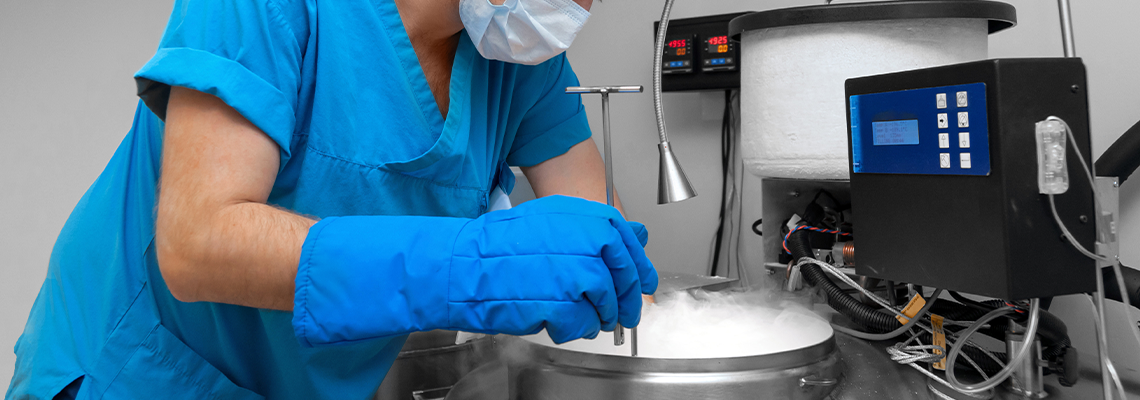Estate planning is an essential process that allows individuals to prepare for the future, addressing various financial, legal, and medical needs.
One Child at a Time

Answering Common
Adoption Questions
Adoption is one of the most rewarding ways to grow a family, but it’s also a legal process that can bring questions, uncertainties, and emotions. At The Law Office of Karen M. Holman, I’m dedicated to guiding families through each step of this journey.
As an experienced adoption lawyer in Winchester, Virginia, I've helped countless individuals and families work toward successful adoptions. Whether you’re considering adoption or already going through the process, I can help provide answers to some of the most common concerns.
What Are the Different Types of Adoption?
Adoptions can take many forms, depending on your family’s situation, preferences, and needs. The most common types include:
Domestic adoption: This involves adopting a child within the United States. It can be facilitated through an agency, an independent lawyer, or, in some cases, directly from a birth parent.
International adoption: Families can adopt children from other countries, though this often requires meeting both the U.S. and the other country’s legal requirements.
Stepparent adoption: When one parent remarries, their new spouse can legally adopt their child. This process typically requires terminating the rights of the noncustodial biological parent.
Foster care adoption: Families can adopt children through the foster care system, often after serving as the child’s foster parents for a period of time.
Relative adoption: Known as kinship adoption, this involves adopting a child already related to you, such as a niece, nephew, or grandchild.
Each type of adoption has unique legal requirements and steps. For example, while stepparent adoptions may be more streamlined, international adoptions often involve complicated processes with immigration laws and international treaties.
How Long Does the Adoption Process Take?
The timeline for an adoption depends on several factors, including the type of adoption you pursue, the requirements of the court, and the availability of a child who matches your preferences.
Domestic adoption: Timelines vary widely, from a few months to several years, depending on whether you’re working with an agency, a lawyer, or an independent adoption.
International adoption: These adoptions often take one to three years, as families must comply with the legal requirements of both countries.
Foster care adoption: This process can range from six months to several years, depending on the child’s circumstances and the foster care system in your state.
The adoption process can involve home studies, background checks, court hearings, and waiting periods. While the timeframe can feel uncertain, the reward of welcoming a child into your family is worth the journey.
What Is a Home Study, and Why Is It Required?
A home study is a mandatory part of most adoptions. It’s an evaluation conducted to confirm that your home and family environment are suitable for a child.
During a home study, you’ll typically meet with a social worker or another licensed professional. They’ll evaluate factors such as:
Your living environment: Is your home safe and appropriate for a child?
Your financial stability: Can you provide for the child’s needs?
Your background: This often includes a criminal history check and personal references.
Your parenting plans: How will you handle discipline, education, and other important aspects of parenting?
The home study process may feel invasive, but it’s designed to protect the child’s best interests. Preparing in advance—by gathering financial documents, creating a child-friendly space, and considering your answers to common questions—can help the process go smoothly.
What Happens After the Adoption Is Finalized?
Finalizing an adoption is a momentous occasion, but it’s also the beginning of a new chapter. After the legal process is complete, there are still important steps to take:
Obtain a new birth certificate: Once the adoption is finalized, the court will issue a new birth certificate listing the adoptive parents as the child’s legal parents.
Update legal documents: Be sure to update your will, insurance policies, and other legal documents to include your adopted child.
Apply for a Social Security number: If your child doesn’t already have one, you’ll need to apply for a Social Security number in their name.
For some families, post-adoption support is also important. This might include therapy, support groups, or resources to help your child adjust to their new home and family.
What Are Some Common Challenges in Adoption?
While adoption is deeply fulfilling, it’s not without challenges. Some families may face:
Emotional challenges: Birth parents, adoptive parents, and adopted children may all experience a range of emotions, from joy to grief to uncertainty.
Legal complications: Adoption laws vary by state, and working through them can feel overwhelming without experienced legal guidance.
Financial costs: Adoption can be expensive, especially for agency or international adoptions.
Having a trusted adoption lawyer can help you work through these challenges and provide peace of mind. My experience in adoption law makes me an invaluable resource for families in Winchester, Northern Virginia, and the Shenandoah Valley.
How Can You Prepare for the Adoption Process?
Preparation is key to making the adoption process smoother. Here are some tips to get started:
Research your options: Learn about the different types of adoption to decide which is best for your family.
Organize your paperwork: Gather documents like financial statements, birth certificates, and references in advance.
Find support: Connect with other adoptive families, support groups, or a therapist to help you process the emotional side of adoption.
Work with an experienced lawyer: I can help you understand the legal requirements and advocate for your family throughout the process.
How Can a Lawyer Assist in the Adoption Process?
Adoption is a legal process that requires a clear understanding of applicable laws and regulations. Having a lawyer like myself involved is essential for confirming that every step is handled correctly and efficiently. An adoption lawyer plays a critical role in protecting the interests of both adoptive parents and the child.
Some of the key responsibilities of an adoption lawyer include:
Preparing and reviewing legal documents: Lawyers draft and review the adoption petition, consent forms, and other critical paperwork to confirm accuracy and compliance.
Representing clients in court: In some cases, court hearings are required to finalize the adoption. A lawyer will advocate for the adoptive parents during these proceedings.
Providing legal guidance: Whether it’s understanding the rights of the birth parents or understanding interstate or international regulations, a lawyer offers valuable clarity.
For adoptive families in the Shenandoah Valley, Harrisonburg, and surrounding areas, I offer experienced guidance. Having professional legal support not only makes the adoption process smoother but also provides peace of mind that all legalities are properly addressed.
How Long Does the Adoption Process Take?
The length of time it takes to complete an adoption depends on the type of adoption and other factors, such as the requirements of specific agencies or court systems. While every situation is unique, it’s helpful to have a general understanding of what to expect.
Domestic adoption: This can take several months to years, depending on whether you’re working with an agency or pursuing an independent adoption. Factors such as matching with birth parents and completing home studies contribute to the timeline.
International adoption: The process often takes one to three years, as it involves meeting the legal requirements of both countries and completing extensive documentation.
Foster care adoption: This is typically shorter, as the child is already in the foster system, but it can still take months depending on the termination of parental rights and other court proceedings.
No matter the type of adoption, patience is crucial. There are often unexpected delays, but understanding the steps in advance and working with a lawyer can help families stay prepared.
For families throughout Northern Virginia and cities like Staunton, Woodstock, and Strasburg, I can provide valuable guidance during the adoption process. From initial consultations to the finalization of the adoption, her firm helps adoptive families meet every requirement efficiently and effectively.
Reach Out to an Adoption Lawyer Today
Adoption is a life-changing decision that comes with both challenges and rewards. By working with The Law Office of Karen M. Holman, you can take each step with confidence. I serve families in Winchester, Virginia, as well as Northern Virginia and the Shenandoah Valley, including Harrisonburg, Staunton, Woodstock, Strasburg, and Stephens City.
For personalized guidance and support, contact the firm today to start your adoption journey.
RECENT POSTS
Adoption is one of the most rewarding ways to grow a family, but it’s also a legal process that can bring questions, uncertainties, and emotions. At The Law Office of Karen M. Holman, I’m dedicated to guiding families through each step of this journey.


